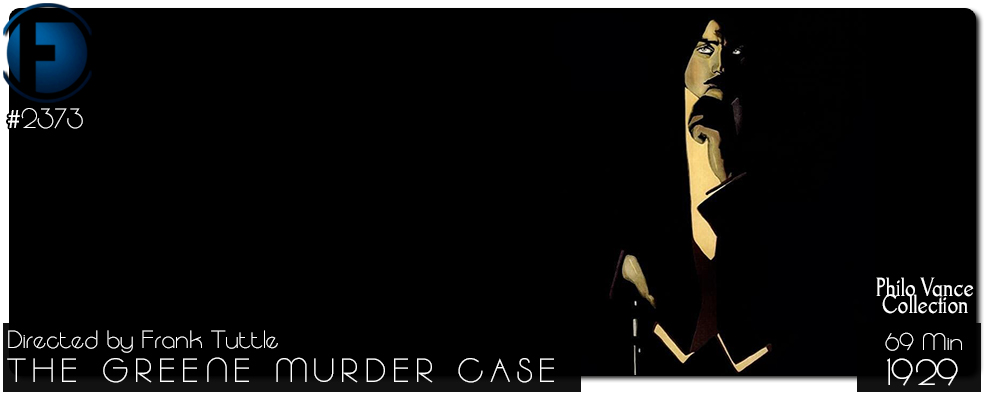Movie Review – Greene Murder Case, The
Principal Cast : William Powell, Florence Eldridge, Ullrich Haupt Sr, Jean Arthur, Eugene Pallette, EH Calvert, Gertrude Norman, Lowell Drew, Morgan Farley, Brandon Hurst, Augusta Burmeister, Marcia Harris.
Synopsis: Rich, disdainful Greene family gathers yearly at creepy ancestral castle to discuss will. One by one, they meet untimely demises during current year’s gathering under mysterious circumstances.
********
The third novel by SS Van Dine in his popular Philo Vance detective series, The Green Murder Case is the second of the Paramount feature film adaptations in the series in which William Powell plays the titular sleuth. Set in an icy New York City somewhere, the film is a potboiler plot and frantic pace mixed with the usual ensemble of suspects to a crime only one man can solve. The film was released in August of 1929, barely six months after the debut of the first film adaptation to release – The Canary Murder Case debuted in February of that same year – and is a lightweight, easy-breezy piece of detective fiction that delights, if not outright entertains. Whereas I found the tone of The Benson Murder Case to be a little forced, with The Greene Murder Case a vague notion of Agatha Christie came across me whilst watching and I couldn’t help but be drawn into the cavernous hallways and sinister character byplay within Louise Long’s screenplay. As with most of the Philo Vance mystery films of the period, The Greene Murder Case clocks in at a brisk 69 minutes, which leaves very little time for modern elements such as character development and a buildup of tension, but unlike the Benson film you can see star William Powell and the wider ensemble really understanding the assinment of their task here.
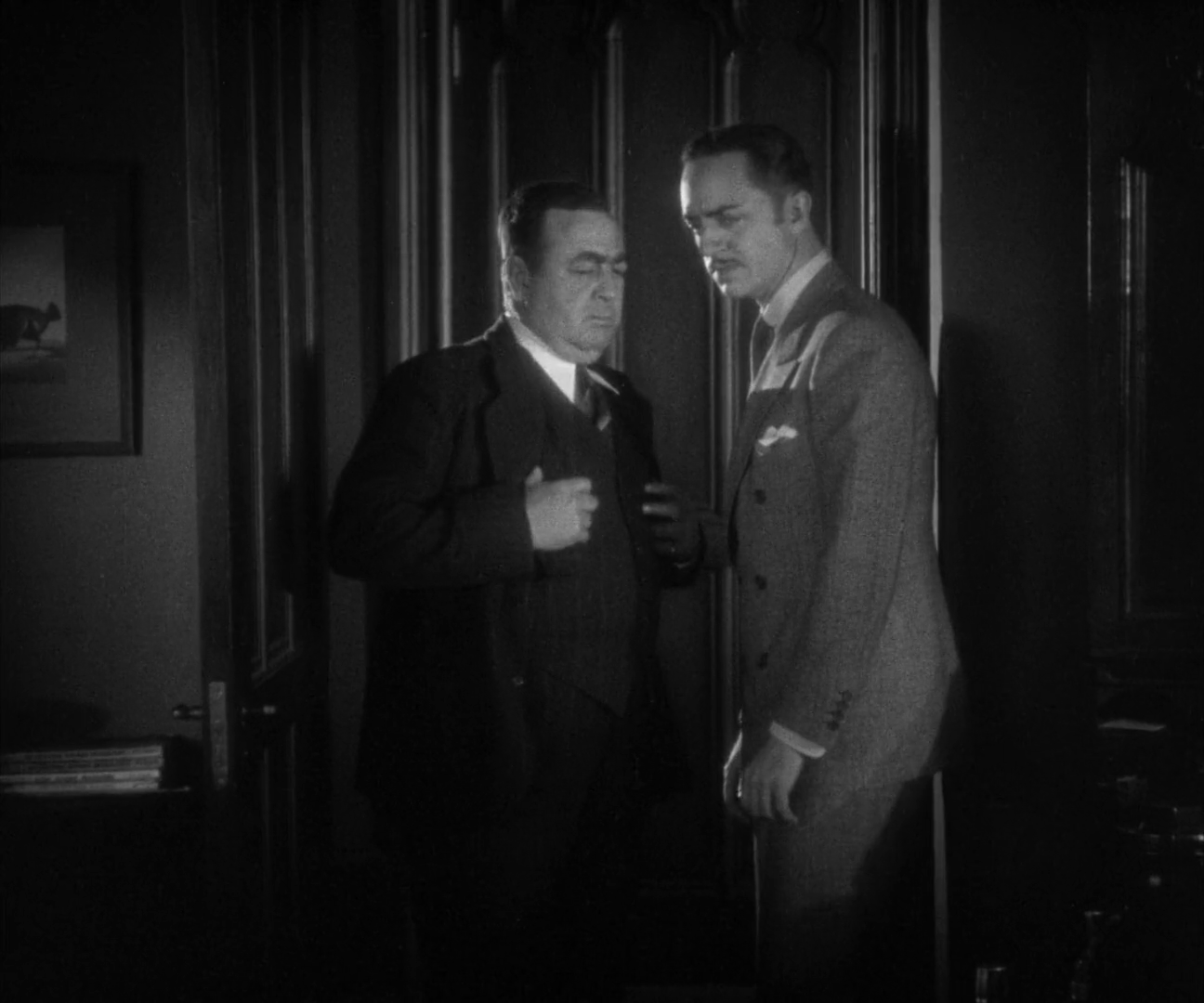
The story is centred around the wealthy and dysfunctional Greene family, who are forced to gather annually to fulfil the stipulations of the late patriarch’s will. The family is ruled by the resentful and ailing Mrs Tobias Greene (Gertrude Norman), who holds little affection for her children, Rex (Morgan Farley), Chester (Lowell Drew), and daughter Sibella (Florence Eldridge). The children despise each other, while adopted daughter Ada (Jean Arthur) is excluded from the inheritance due to her non-blood relation. The tension within the household is palpable, with suspicions surrounding Sibella’s indiscreet affair with the family’s doctor, Arthur Von Blon (Ullrich Haupt Sr), and rumours that Mrs Greene’s infirmity may not be as severe as it seems. The Greene family’s servants, including butler Sproot (Brandon Hurst), housekeeper Gertrude Mannheim (Augusta Burmeister), and devout Hemming (Marcia Harris), also harbour their own doubts. When members of the family start being murdered, District Attorney John Markham (EH Calvert) enlists the help of amateur detective Philo Vance (William Powell), who, alongside Sergeant Ernest Heath (Eugene Pallette), must sift through the animosity and hidden motives to unmask the killer.
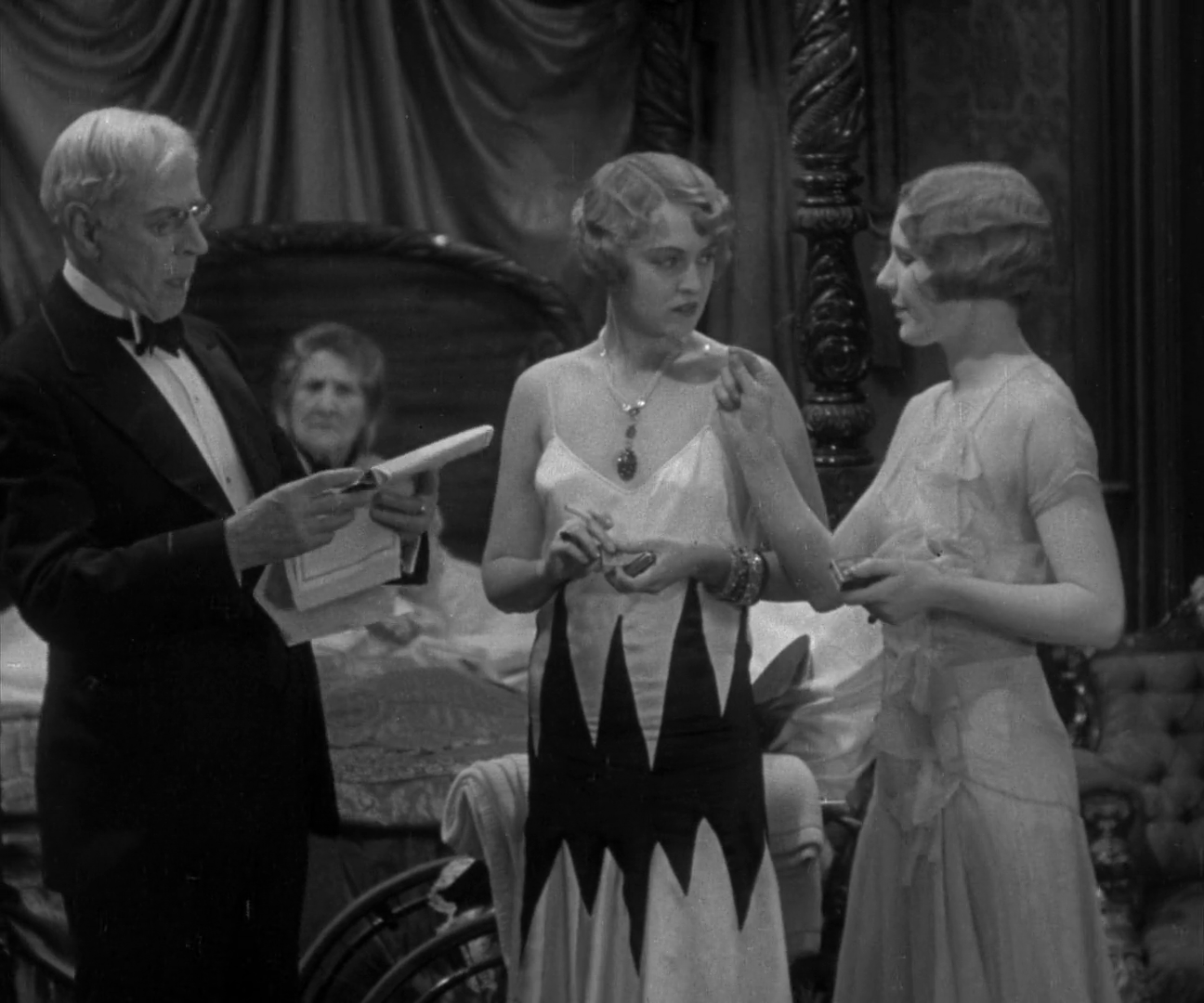
At one point, star William Powell would infamously declare the character of Philo Vance to be an empty vessel and depart the series citing lack of depth to the part, and to an enormous degree he’s absolutely correct. Vance, the archetypal amateur detective who is given an enormous amount of latitude to run roughshod over little things like evidence and chain of responsibility, is about as bland and nuance-free as you can imagine if I told you he had the personality of a vanilla yoghurt. The character of Vance serves solely as a conduit for clue detection and the inevitable revelation of too-clever-by-half writing from both the series original author, SS Van Dine, and the film’s credited screenwriter Louise Long, who does her best to give these paper-thin characters some emotional investment. Sadly, Powell proves himself to be correct – despite the actor’s effortless charm and diffident on-screen persona running circles around the rest of the ensemble on a purely talent-based level, not even he can turn Philo Vance into a compelling character in his own right. It’s worth mentioning that I think these films work best when the one-dimensionality of all the various murder mystery archetypes are pushed to the fore, and a condensed running time astutely removes any time given to generating an audience connection to these people, so perhaps the requirement of modern filmmaking to give us every character’s backstory doesn’t need to work in the case of the Philo Vance series.
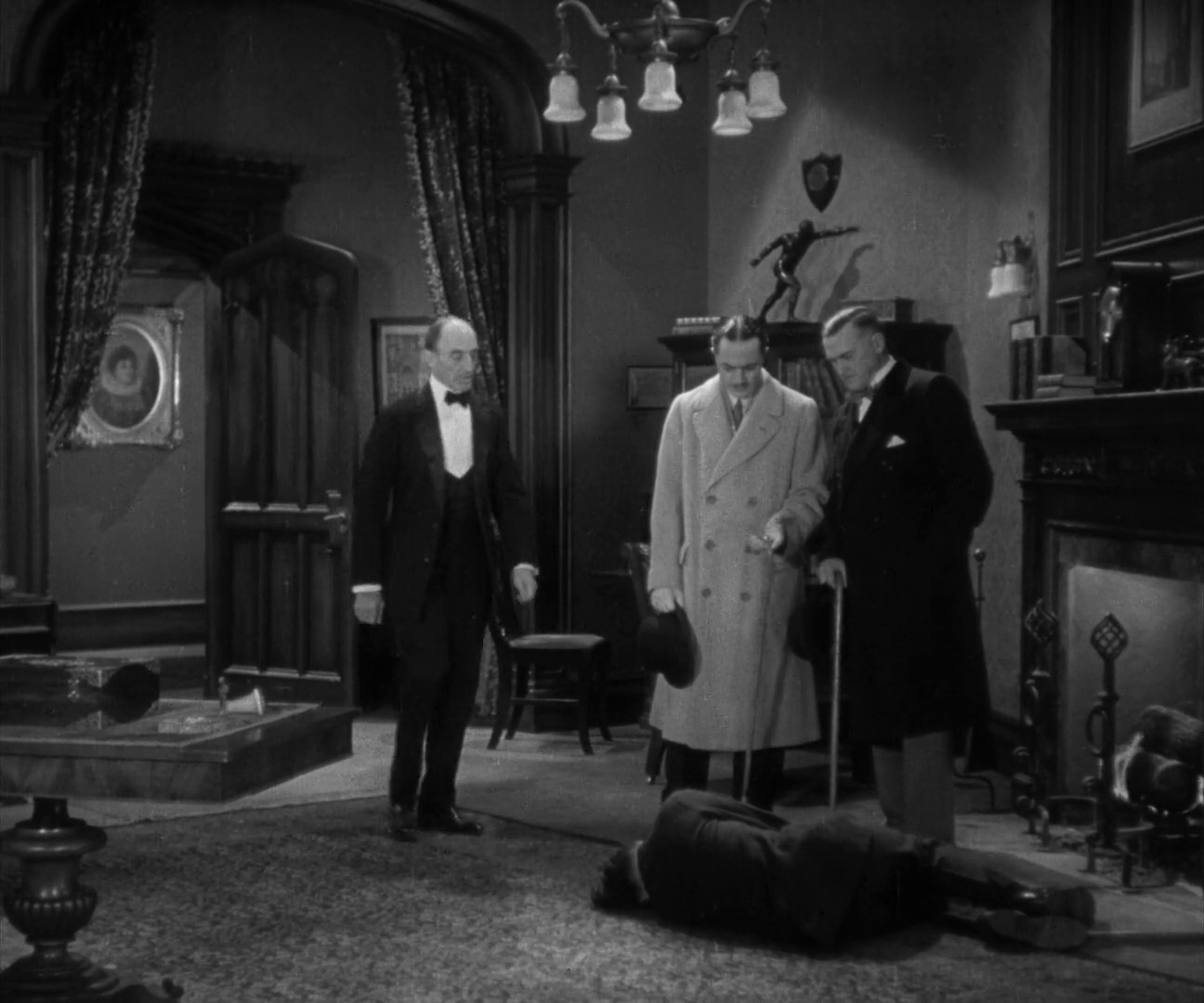
The mystery itself is very much in keeping with the original book’s pulpy station; this is a progenitor of the Dan Brown style of writing – exposition and description overriding depth or development of ideas beyond the superficial, and as you might imagine a 60-minute movie accommodates this thin style with ease. Frank Tuttle directs the film with finesse and effortless energy, giving the production design a stately, vaulted air of crypt-keeping as much as it trundles along like a child on a sugar high. Characters aren’t very well developed beyond their initial brief to the viewer – the Greene’s all hate each other and are only residing in the mansion because some old dude wrote it as a condition of his will – and the Downton Abbey-style class divide manifests between the rapidly murdered family members and their household staff, none of whom feel very appreciated during the course of the story. Powell’s sidekick in this series is primarily Eugene Pallette as the grumpy, somewhat incompetent but good-hearted Sergeant Heath, who continually looks befuddled despite being a fairly experienced policeman, and as a Holmes/Watson pairing both actors seem very comfortable in their respective roles. I alluded to the weird disconnect between Pallette’s work and the tone of the story in the Benson film, and while I had similar issues in this film they never manifested as egregiously.
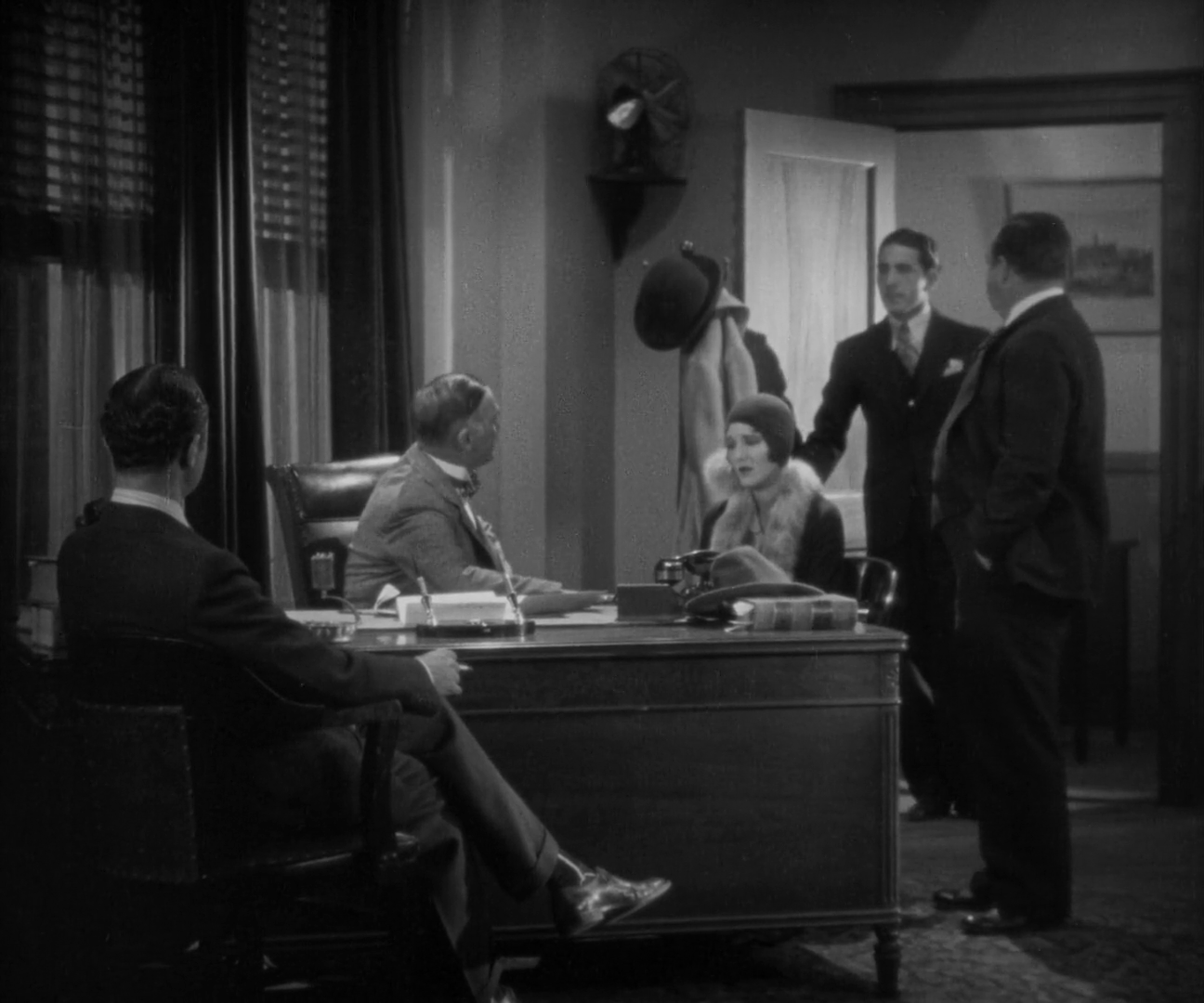
The wider ensemble is a gaggle of players who fit neatly into specific character moulds. Jean Arthur, playing a different character here than she did in the first film in this series, The Canary Murder Case, is as innocent as a lamb playing Ada Greene, while Florence Eldridge has a delicious time as the duplicitous Sibella. Ullrich Haupt Sr is great as the enigmatic family doctor, whose ability to determine the contents of his medical bag – inside which he carries lethal amounts of strychnine, no less! – with barley a glance is simply supernatural, while I really developed a soft spot for the manservant Sproot, a long-suffering and monotoned precursor to The Addams Family’s Lurch (in my opinion), played by Brandon Hurst. Hurst was a very busy actor, appearing in numerous stage productions until snagging his first screen role aged 49, and would go on to appear in over 100 roles before he died in 1948. To me, his turn as Sproot is vastly underrated here, given how wry and taciturn his performance is alongside Powell’s more assertive turn. Morgan Farley’s early role as Rex Greene is sighted from the start as a red herring character, and the actor is quite good in the part.
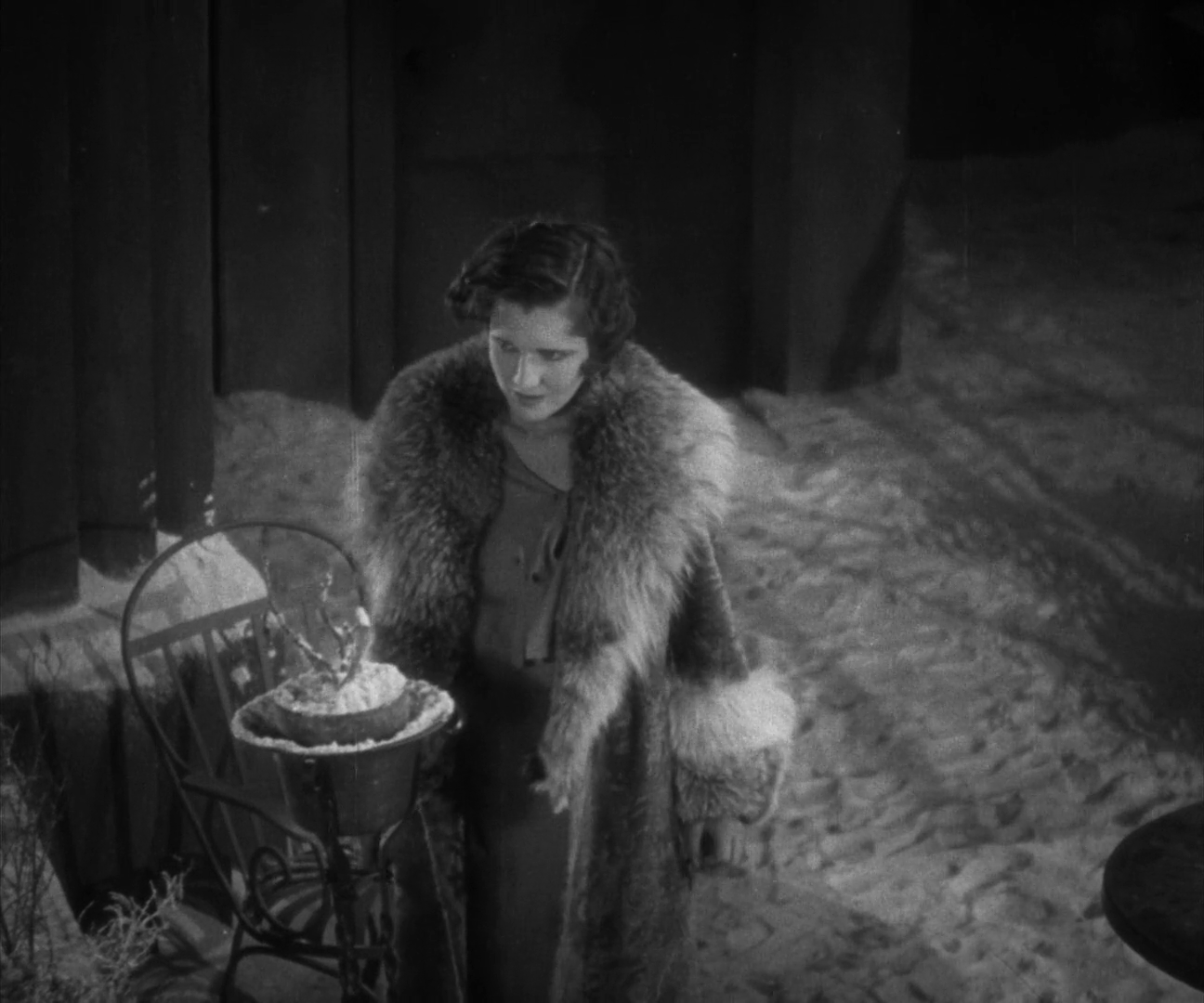
The film isn’t, however, an “actor’s movie”; rather, this is a film about atmosphere, plot and getting through the mystery as quickly as possible. Tuttle’s ability to generate any atmosphere and tension at all is only really due to the film’s superb sets, what a Star Trek fan might call a “bottle episode” in that it’s entirely set on a sound-stage and never once uses any location footage (aside from a very clever matte effect to widen the vista of the Greene mansion’s exterior), and Henry Gerrard’s cinematography is really quite effective. The camerawork isn’t quite as delightful, however, with the film mostly shot in static shoulder-level angles, although the notable climax atop the roof of the mansion itself is both exciting and well edited (kudos to Verna Willis, in this respect): the film really feels like a secluded murder mystery should, if that makes sense, despite the plot contorting itself to permit innumerable seen and unseen visitors to the mansion to just trample through without bothering to protect things like, you know, a crime scene. The alarming cavalier nature of police work back in the 1920’s makes me wonder how crime ever got sorted out, given the aloof and indifferent nature of the force to carry out an investigation – hell, even the medical examiner (Shep Camp) turns up bloviating about the shit he’s missing because people keep turning up dead, and I had to LOL – but that sense of every scene and sequence having the potential to reveal a clue to the mystery, pervades without fail. The foreboding sense of death is ever-present, and that feeling goes a long way to making this movie so much more enjoyable.
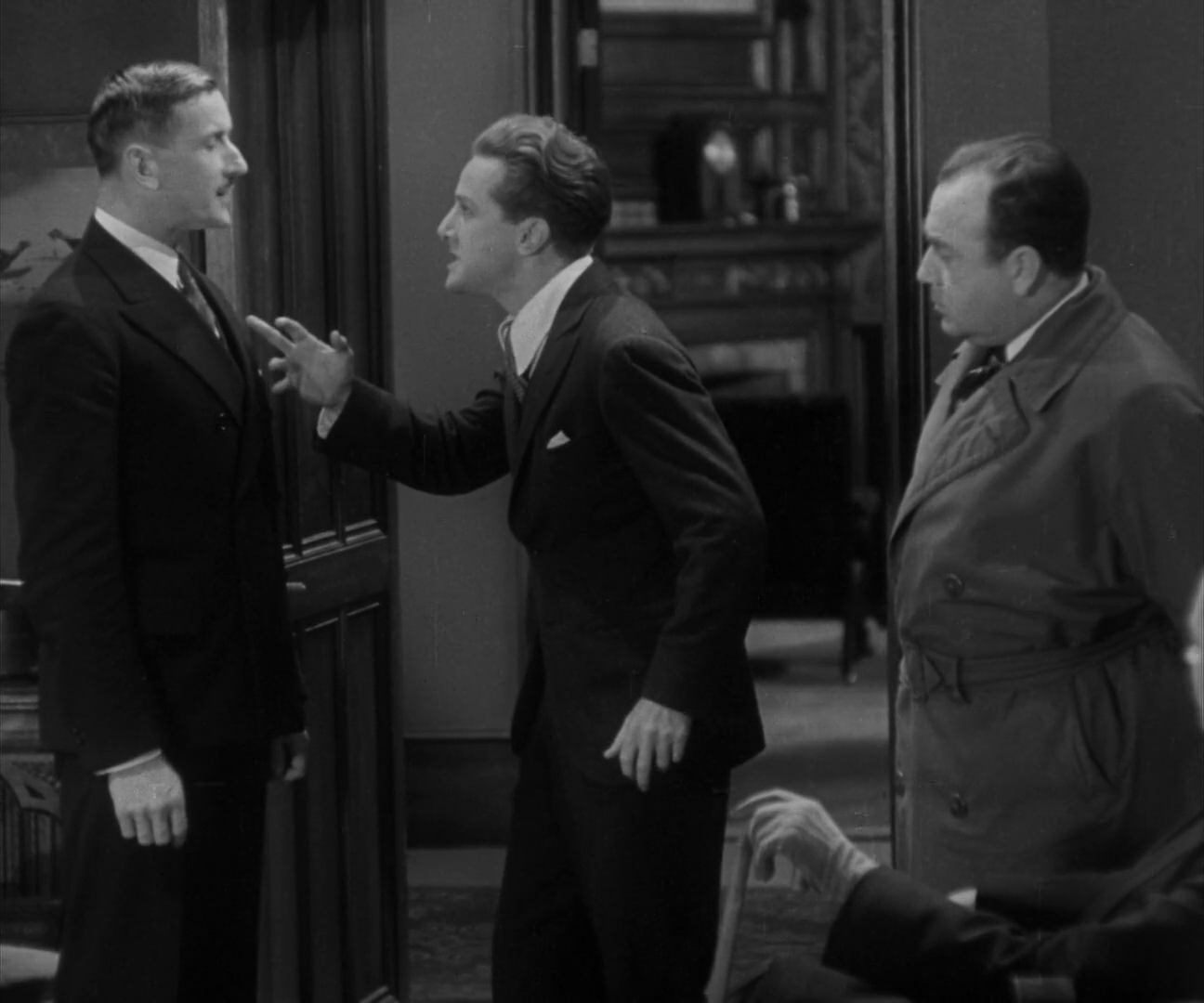
The Greene Murder Case is a quickfire mystery movie lasting barely an hour, and in that time William Powell manages to solve a complex series of puzzles that pile onto each other until they threaten to overwhelm the viewer. It’s rare a plot contrives to heap twist upon twist with such abandon and whimsy – yes, whimsy – but this one achieves it without missing a beat. The period nature of the film’s production means some of this feels anachronistic and a touch out-of-date compared to today’s complexities, but the simplistic nature of detective work in the time of Sherlock Holmes, Hercule Poirot or Sam Spade make this Philo Vance entry a fun one. Well worth a look.

